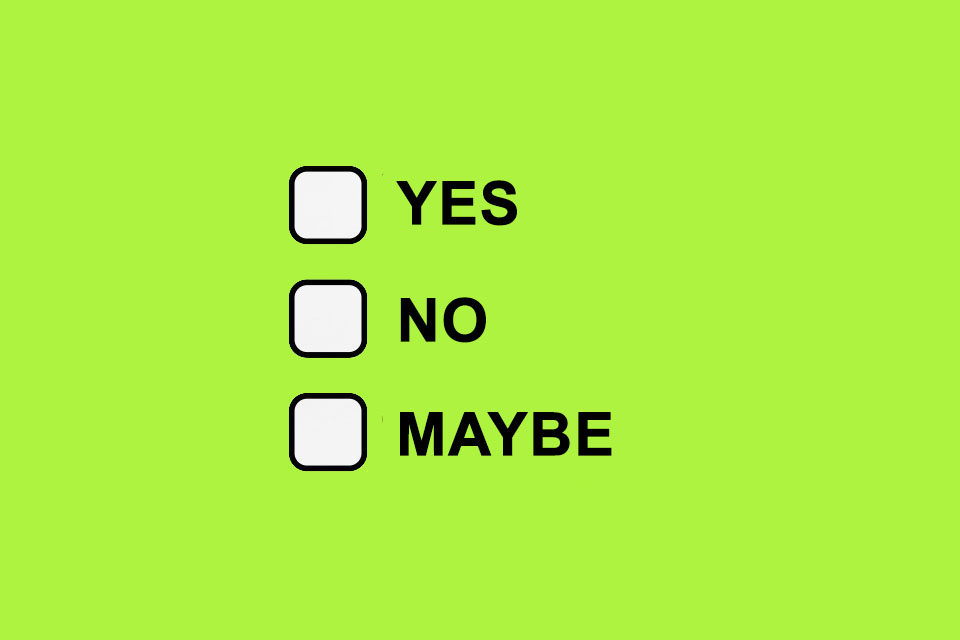6 templates for better collaboration
‘How important is appreciation to you in the workplace?’
I recently started a post here on the t2informatik Blog with this question. Appreciation is an important ingredient for successful collaboration in companies. Today, I would like to recommend some templates that can positively influence the way people work together in your company.
Disclaimer: None of the templates I will recommend are theoretically sound. None of the templates are based on empirical evidence. I also don’t believe that there are any universal success factors, methods or templates that can bring about lasting change for the better in a team simply by being mentioned. I don’t know of any blueprint that fits all social systems or individuals. Nevertheless, I will present 6specific templates – perhaps one or other of them will be helpful for you or your colleagues.
I can…
Can you paint?
I suspect that many adults would answer this simple question with ‘No’ and a great many children would answer ‘Yes’. Of course, the older we get, the more demanding we are of ourselves, we get to know outstanding artists and yes, we compare our abilities with the works of famous people. And indeed, most people will rightly say ‘No, I can’t paint’ after comparing themselves to Salvador Dali. However, if you had asked Picasso, he would probably have also answered ‘no’ when looking at Dalí’s art. It’s a good thing that the term ‘unique’ cannot be improved upon, and that you and I are also unique. So the only correct answer is: ‘Yes. Of course I can paint.’
I can… is the simplest template that you can find in our download area. ‘Isn’t something missing?’ a newsletter recipient once asked me after downloading the template. No, nothing is missing; it is actually just a blank sheet of paper with the words ‘I can…’ on it. And yes, something is missing: your description of the things you can do.
We can all do a thousand different things. Often we no longer see them because they seem normal to us. It is very difficult to appreciate what we cannot see (or feel or know). Perhaps you know the first 20 decimal places of Pi by heart, or you can complete a Rubik’s Cube in less than three minutes. Perhaps you can recite the alphabet backwards or remember the revenue figures from the last 12 months? Or do you have a photographic memory and can match a name to everyone you met at a trade fair or conference?
I can… is a small template that helps you to reflect on your abilities. Do you need a download for this? No, of course not. All you need is a pen and 10 minutes of your time. Despite the lack of empirical evidence, I am sure that when you look at the sheet of paper with your answers, you will be surprised at what you can do!
Manual of me
It’s great when you know what you’re capable of. But do your colleagues know how they can best work with you? Do they know your preferences or things that are difficult for you?
The manual of me is a template that you can use for yourself, but also for your colleagues in your team or department. For example, you can use it to record the times at which you prefer to work. Does it bother you, for example, if you receive an e-mail at 7:00 a.m. in the morning or an urgent phone call after 8:00 p.m.? Do you feel disturbed in your weekend peace when a small task for Monday morning flutters into the team chat?
How do you actually prefer to communicate? By email, WhatsApp or Zoom? On the phone or face to face? And what do you need to work well? Two undisturbed hours, a clear work instruction or a specific goal?
The manual of me is a tool that provides you with clarity about what is important for your professional well-being. And it is a way for your colleagues to take into account the things that are important to you, as far as possible. Stress triggers that you want to avoid. Feedback that helps you. Ideally, you should also take note of the contributions of everyone else in return – after all, the aim is to improve collaboration together.
Capture insights with a personal retro
With the advent of agile approaches, many organisations have come to appreciate the advantages of retrospectives [1]. Of course, there were already lessons learned meetings [2], pre-mortems [3] or project reviews [4] before that. Despite this wide range of options, one format is relatively rarely practised: the personal retro.
As the name suggests, a personal retro is a personal review. A review in which you collect information for yourself, record insights and define measures.
With the personal retro template, you document what you want to try next or do more of in the future based on your experiences. You record both aspects of your work that work well for you and that you would like to keep, and things that you no longer want to do or use from now on.
Whether or not you share your insights and actions with your colleagues depends on the context. For example, if you decide to write down three positive things that happened during the day in a diary in the evening and communicate this information to the team, then you are sharing something personal, but it may not have any concrete effect on the team’s work together. However, if you decide that it makes no sense for you to conduct a sprint review without stakeholders present, then that is very relevant for everyone involved.
Wishes for colleagues
If you work in a team, you are sure to notice that there are some aspects of your colleagues’ work that you like very much. But perhaps there are also one or two aspects that you don’t find quite ideal. This is where the wish list comes in.
The wish list is a template with a similar structure to the personal retro template. You can use the template to communicate aspects that a colleague might do more often (e.g. bring buttered pretzels to the meeting or act as a mouthpiece for the team when management’s statements are unclear). You can give hints about what a colleague could try (e.g. learning to say no or using the DeepL Write tool to check texts). You can also express wishes about what a colleague should do less of (e.g. speaking disparagingly about colleagues from other departments or making jokes at the expense of absent persons). And you can express a wish for a colleague (e.g. ‘I wish you more public recognition and will try to actively support you in this’).
From my point of view, wishes are something personal, so I would not communicate them publicly. In a way, the wish list is written feedback among colleagues, and this has an effect when it is formulated and given benevolently. And benevolent feedback can be a good ingredient for better cooperation, can’t it?
Supporting each other with a time credit
The language of appreciation varies from person to person. For some, time is a very precious commodity. Anyone who has to pick up their daughter from kindergarten on time can understand this. Ideally, colleagues in a team should support each other. Often this happens on an ad hoc basis, but sometimes tasks are distributed in meetings according to available capacity. But what if something unexpected happens and a customer needs something very quickly, but there isn’t enough time for production and delivery? This is where a time credit can help in a playful way.
With the time credit template, you can give a colleague a little time. Minutes, hours, days – you decide on the scope of the gift. You certainly make people happy for whom time is a very valuable commodity. Perhaps you can take some pressure off a situation with the time credit voucher. And maybe you can also create some mental space – certainly a good basis for a desirable collaboration.
Compliments to take away
Last but not least, I would like to recommend a template that will almost certainly improve teamwork in a nice way and put more than just a smile on the faces of those involved. Compliments to take away is a simple sheet of paper with various paper strips to tear off. It’s a bit like a flat-sharing ad that you occasionally find on front doors or traffic lights, adapted to the situation in the company. The paper strips contain individual compliments such as ‘You’re a natural organiser. Absolutely world class!’, ‘I can always rely on you. Thanks a lot!’ or ‘You saved the project with your commitment! Great!’
Compliments to take away are, of course, no substitute for employee appraisals, they are no substitute for a quarterly routine or a team retrospective. But when it comes to lightening the mood in the break room or meeting room, creating a sense of unity, or perhaps even initiating a discussion about the feedback and error culture in the company, then compliments on the go are a tool that is very easy to use and customise.
Conclusion
There are various templates that can help you to improve teamwork. None of the templates mentioned need to be used or downloaded. If you recognise what is important to you, if you know what your colleagues value and if you support each other in the team, then you already have many ingredients for good teamwork. But if there is a lack of clarity at one point or another, then you now know where you can find small, perhaps useful templates.
Notes:
[1] Here you will find tips for conducting retrospectives.
[2] Here you will find information on the ideal point in time for lessons learned.
[3] Here you will find a procedure for a premortem.
[4] Here you will find information on the purpose and benefits of project reviews.
Impulse to discuss
How important is it for teamwork to put personal aspects of interaction in writing?
Michael Schenkel has published more posts on the t2informatik Blog, including:

Michael Schenkel
Head of Marketing, t2informatik GmbH
Michael Schenkel has a heart for marketing – so it is fitting that he is responsible for marketing at t2informatik. He likes to blog, likes a change of perspective and tries to offer useful information – e.g. here in the blog – at a time when there is a lot of talk about people’s decreasing attention span. If you feel like it, arrange to meet him for a coffee and a piece of cake; he will certainly look forward to it!
In the t2informatik Blog, we regularly publish articles by experts. Today, the topic was simple tools for better teamwork. Basically, we focus on the people in organisations in our work. Because we develop and modernise software for these people. Pragmatic. ✔️ Personal. ✔️ Professional. ✔️ Click here to find out more.


